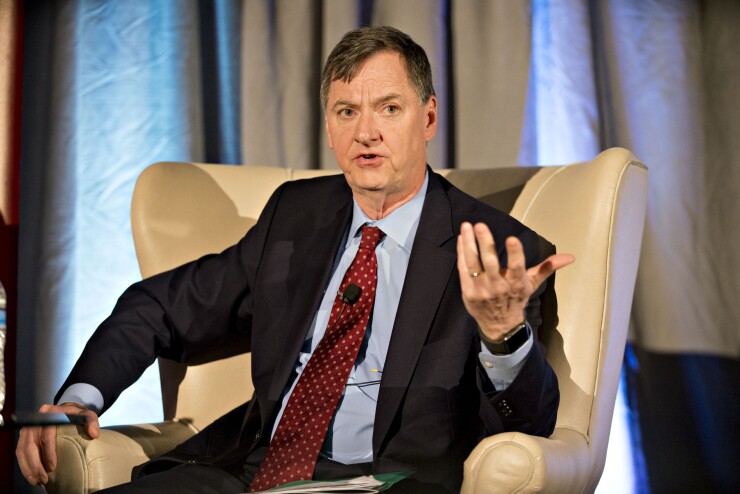Federal Reserve Bank of Chicago President Charles Evans said the central bank should increase interest rates to close to its “neutral” setting this year, implying as many as seven quarter-point hikes.
“If we were to do 25 basis points at each meeting, which may be more than I think is essential, but if we did it at each meeting, we’ll end the year at 1.75% to 2%,” he told CNBC in an interview Friday, referring to the target range for the Fed’s benchmark overnight policy rate. “That is close enough to neutral that we could take quick action if it were necessary. Or we could stick or we could back off if that is what the case was.”

The so-called neutral rate in monetary policy is a theoretical level that neither speeds up nor slows down the economy. Fed officials in December estimated that to lie around 2.5%, according to their medium projection.
Evans spoke after data showed that hiring boomed in February while wage growth slowed. Employers increased payrolls by 678,000 last month and the advance was broad-based across sectors, a U.S. Labor Department report showed. The unemployment rate edged down to 3.8%.
“It is good news,” Evans said. “It doesn’t really change anything that Chair Powell was sort of prepositioning the Fed for the other day.”
Chair Jerome Powell told lawmakers earlier this week that he backed raising interest rates by a quarter point at the central bank’s March 15-16 meeting, commencing a series of increases to confront the hottest inflation in 40 years.
His remarks, which were unusually candid so close to the next meeting of the Federal Open Market Committee, effectively took a larger half-point move off the table that some officials had discussed, though Powell said the FOMC could move more aggressively if needed going forward.
Powell said the Fed would do what was necessary to cool price pressures, while cautioning that Russia’s invasion of Ukraine was a source of great uncertainty that had driven up oil prices, which would push inflation even higher, but also potentially hurt growth.





